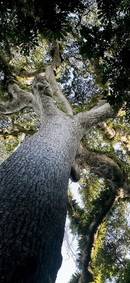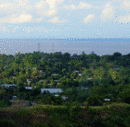Noticias

Together, African forests form one of the biggest carbon sinks in the world. Recognising the role of forests in helping mitigate climate change, many African countries are working towards implementing Reducing Emissions from Deforestation and Forest Degradation (REDD+) activities.
In such a vast region, each forest has unique biodiversity and ecological systems, as each REDD+ country has differing political, economic and social systems which interact with forests. Nevertheless, the design of the forest monitoring system, even if considering national circumstances, is based on international agreements and rules. The United Nations Framework Convention on Climate Change (UNFCCC) motivates countries to set up...

Food and Agriculture Organization of the United Nations (FAO) has recently launched its support to prepare three countries for the Green Climate Fund (GCF) in Equatorial Guinea, the Republic of Congo and the Lao People's Democratic Republic. FAO’s technical assistance programme on GCF readiness aims to strengthen capacities and support stakeholder consultations to increase country access to the GCF while assisting in the identification of mitigation and adaptation funding opportunities in the agriculture, forestry and other land use sectors (AFOLU). Amounting to approximately USD 2 million in technical assistance, these projects will support countries to complete key elements of their...

Forests sequester carbon, support the livelihoods of 1.7 billion people and act as vital reservoirs for biodiversity. However, as a valuable resource, forests have frequently been the spark that ignites conflict among multiple stakeholders having divergent priorities for the same landscape. When one group — whether inadvertently or deliberately — withholds access to a forest resource or to the decision-making process from another user group, non-violent or violent conflict is more likely. Conflict can also lead to the inequitable distribution of benefits, disputes over land rights and access, and a lack of engagement with the forest management process. It is estimated...

The 2017 United Nations Climate Change Conference (COP23) highlighted climate change-related challenges small-island developing state face on a daily basis. The Solomon Islands, a double chain of islands located in the southwest Pacific, is not a stranger to such challenges. Exposure to natural hazards influences greatly the country’s ability to reach Suitable Development Goals (SDGs) and be resistant and prepared for an always-greater susceptibility to climate change. As is widely known, forests can significantly mitigate natural disasters at the same fighting climate change with its carbon sequestration potential. Recognizing forests’ potential, the Solomon Islands has embarked on a challenging journey...

On 16 July 2018, government representatives, civil society and international organizations gathered for the high-level side event co-hosted by Poland’s Presidency for COP24 and FAO entitled “Implementing Article 5 of the Paris Agreement and achieving climate neutrality through forests”. It took place during the 6th World Forest Week at FAO Headquarters in Rome, Italy and highlighted the catalytic and driving role of forests in strengthening efforts to implement the Paris Agreement.Article 5 of the Paris Agreement invites countries to take action to conserve and enhance sinks and reservoirs of greenhouse gases, including forests. The article also encourages actions to implement...

